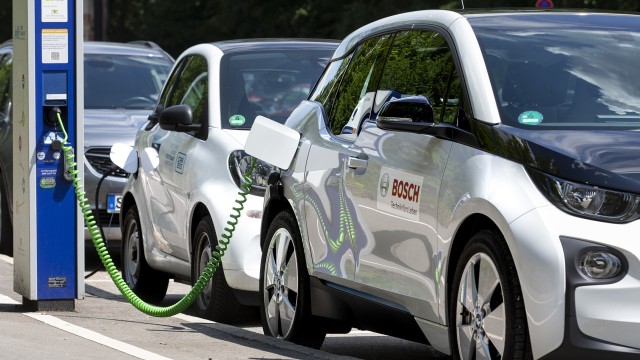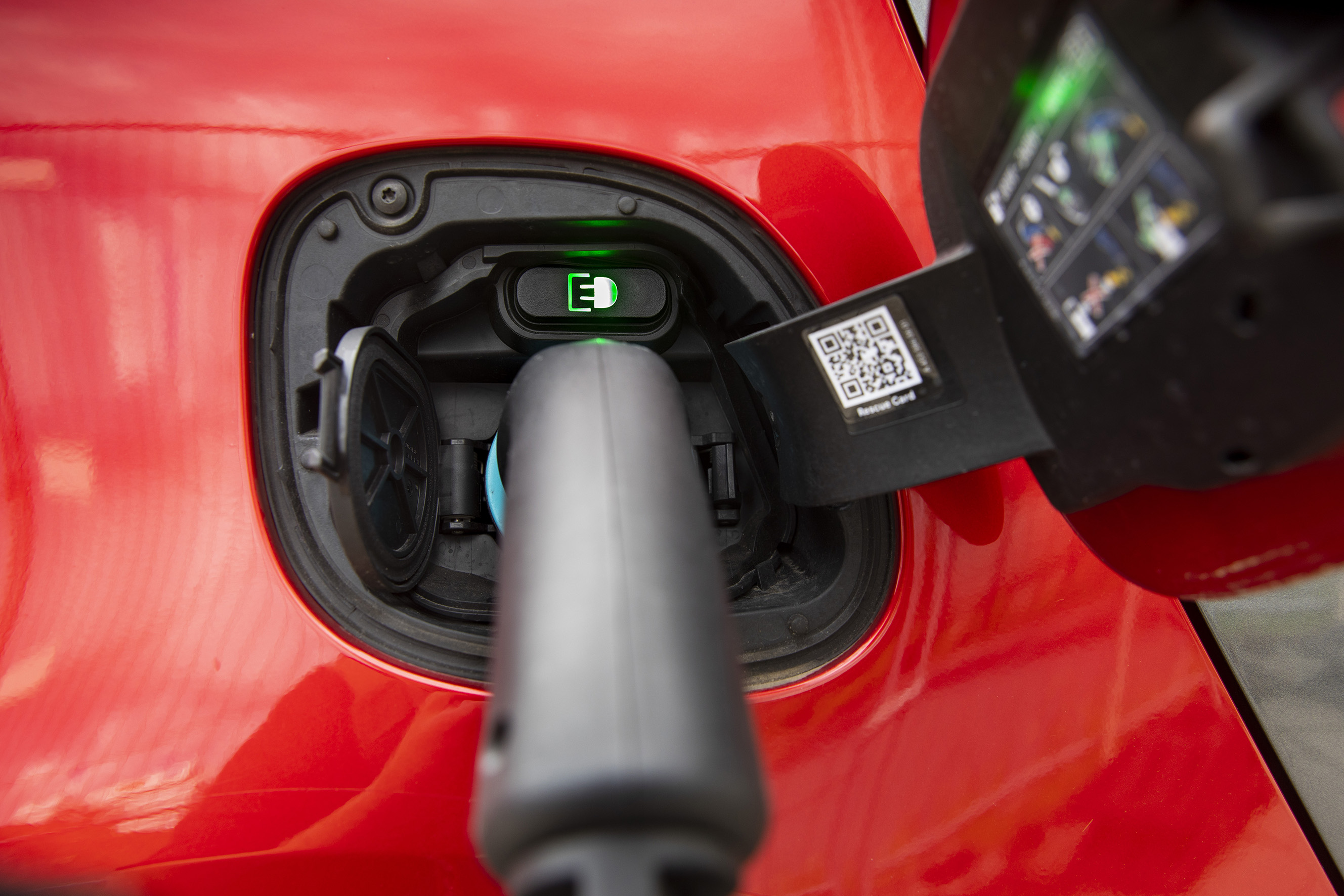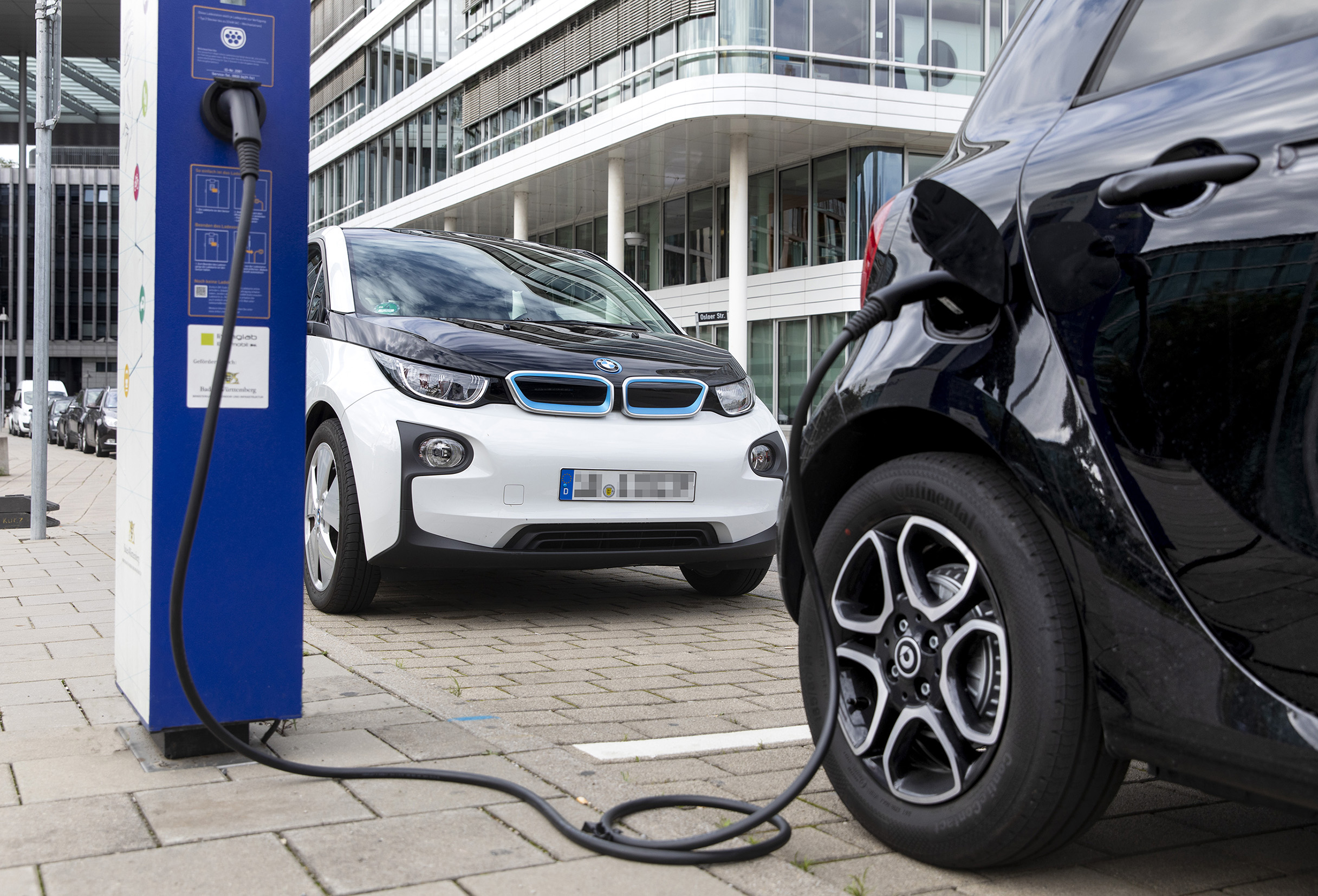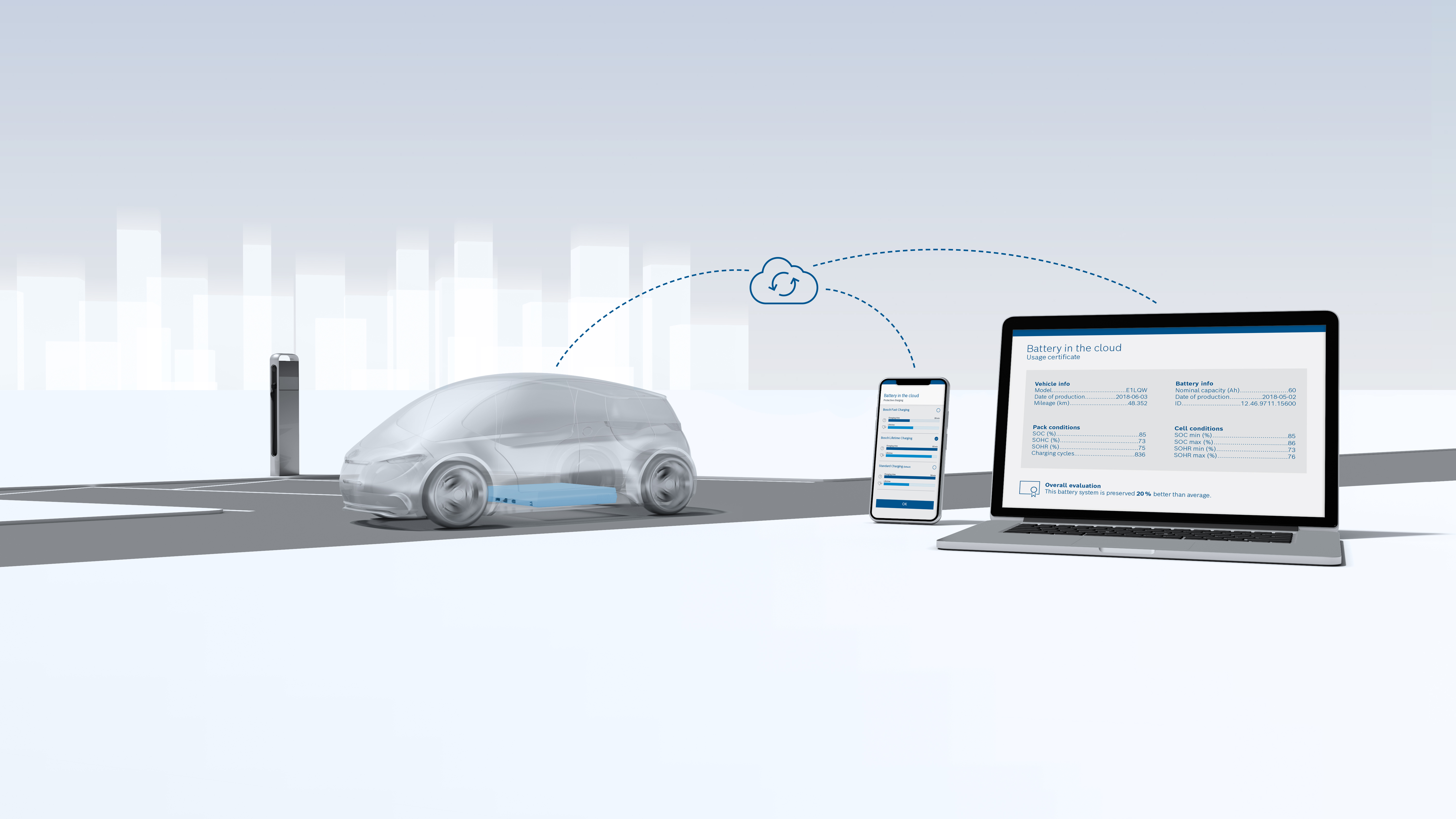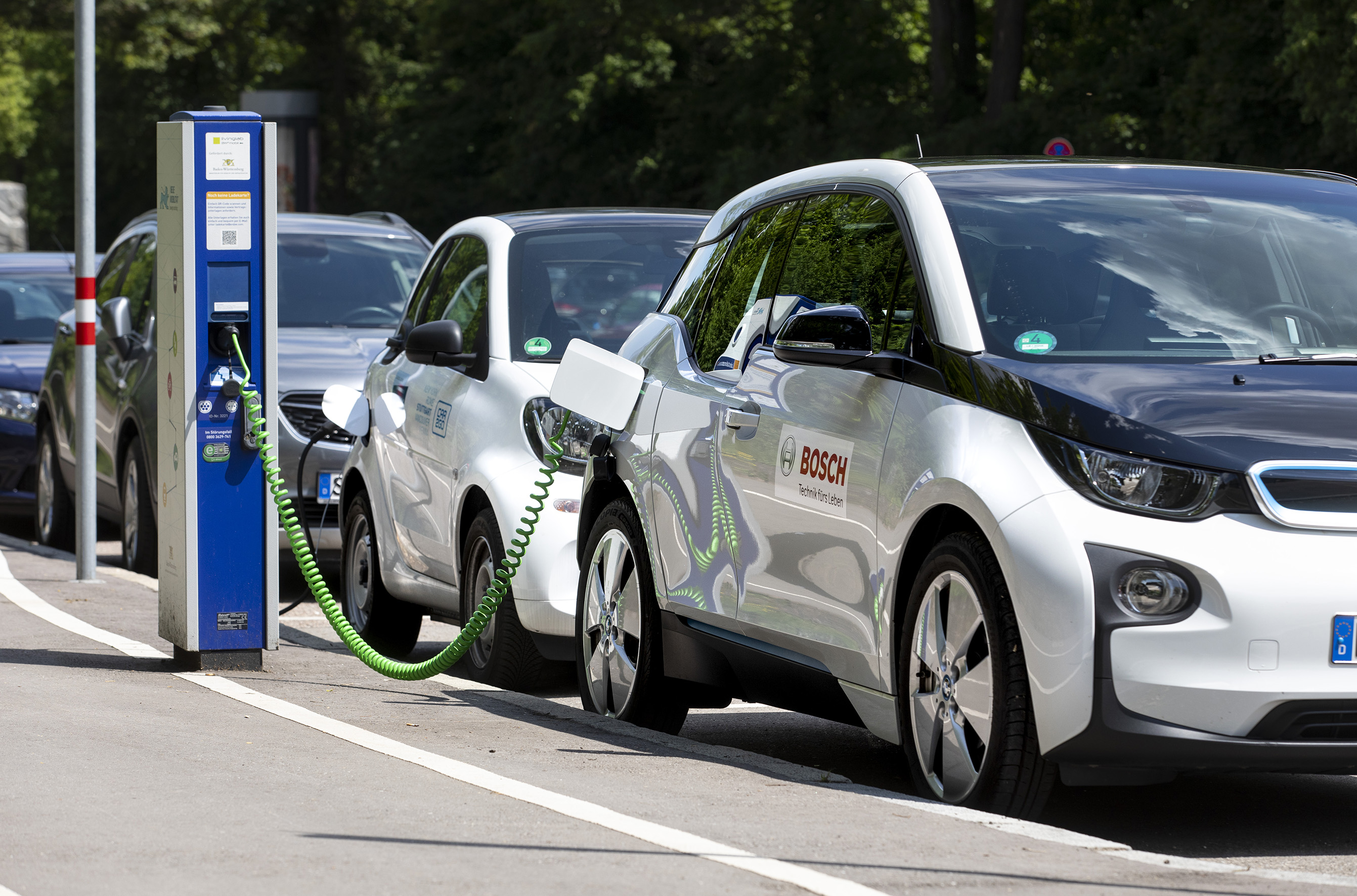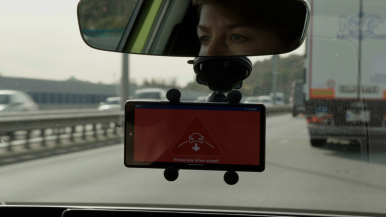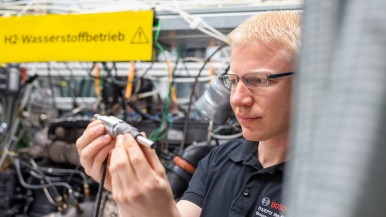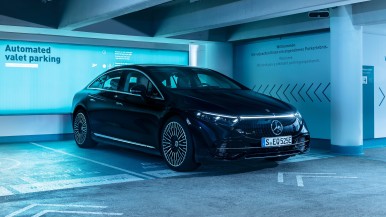Stress makes cells age faster. Something that geneticists have long since demonstrated for the human body is also true for electric-vehicle battery cells. The older the batteries get, the lower their performance and capacity, and the shorter the range of the vehicle. To help batteries last longer, Bosch is developing new cloud services that supplement the individual vehicles’ battery-management systems. “Bosch is connecting electric-vehicle batteries with the cloud. Its data-based services mean we can substantially improve batteries’ performance and extend their service life,” says Dr. Markus Heyn, member of the board of management of Robert Bosch GmbH. Smart software functions in the cloud continually analyze the battery status and take appropriate action to prevent or slow down cell aging. These measures can reduce the wear and tear on the battery, the most expensive component of an electric vehicle, by as much as 20 percent. Real-time data gathered from the vehicle and its surroundings plays a key role here. The cloud services utilize this data to optimize every single recharging process and to provide drivers with tailored driving tips on how to conserve battery power via the dash display. Bosch calls the new service Battery in the Cloud, and its first customer is DiDi, China’s leading provider of mobility services.
About Bosch
Bosch has been present in Belgium since 1907. The Bosch Group employs approximately 1,050 associates in Belgium. The main sites are located in Tienen, Anderlecht and Mechelen.
The Bosch Group is a leading global supplier of technology and services. It employs roughly 428,000 associates worldwide (as of December 31, 2023). According to preliminary figures, the company generated sales of 91.6 billion euros in 2023. Its operations are divided into four business sectors: Mobility, Industrial Technology, Consumer Goods, and Energy and Building Technology. As a leading IoT provider, Bosch offers innovative solutions for smart homes, Industry 4.0, and connected mobility. Bosch is pursuing a vision of mobility that is sustainable, safe, and exciting. It uses its expertise in sensor technology, software, and services, as well as its own IoT cloud, to offer its customers connected, cross-domain solutions from a single source. The Bosch Group’s strategic objective is to facilitate connected living with products and solutions that either contain artificial intelligence (AI) or have been developed or manufactured with its help. Bosch improves quality of life worldwide with products and services that are innovative and spark enthusiasm. In short, Bosch creates technology that is “Invented for life.” The Bosch Group comprises Robert Bosch GmbH and its roughly 470 subsidiary and regional companies in over 60 countries. Including sales and service partners, Bosch’s global manufacturing, engineering, and sales network covers nearly every country in the world. The basis for the company’s future growth is its innovative strength. At 136 locations across the globe, Bosch employs some 90,000 associates in research and development, of which roughly 48,000 are software engineers.
The company was set up in Stuttgart in 1886 by Robert Bosch (1861–1942) as “Workshop for Precision Mechanics and Electrical Engineering.” The special ownership structure of Robert Bosch GmbH guarantees the entrepreneurial freedom of the Bosch Group, making it possible for the company to plan over the long term and to undertake significant upfront investments in the safeguarding of its future. Ninety-four percent of the share capital of Robert Bosch GmbH is held by Robert Bosch Stiftung GmbH, a charitable foundation. The remaining shares are held by Robert Bosch GmbH and by a corporation owned by the Bosch family. The majority of voting rights are held by Robert Bosch Industrietreuhand KG, an industrial trust. The entrepreneurial ownership functions are carried out by the trust.
Additional information is available online at www.bosch-press.be, www.bosch.be, www.bosch.com, www.iot.bosch.com, www.twitter.com/BoschBelgium, www.linkedin.com/company/bosch-belgium/ and YouTube: Bosch Belgium

